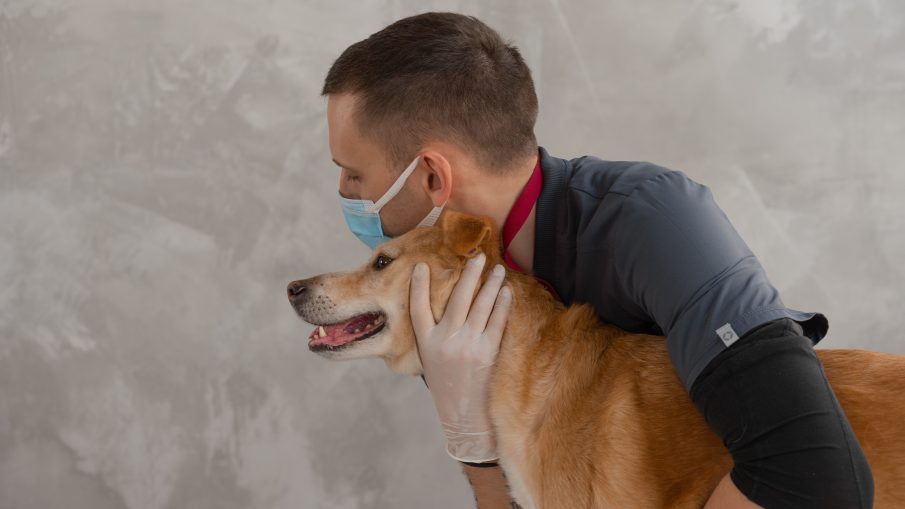Shepherdstown, W.Va., – When it comes to veterinary medicine, there is a dark side that many aren’t aware of. On the off chance that a light is shined on the subject, very few are willing to speak out about it. The shadow that looms over a veterinarian’s life is the knowledge that they are more likely to struggle with depression, anxiety, and face a higher chance of committing suicide.
Veterinarians are 3.5 times as likely to die from suicide due to their profession and mental health complications that arise, according to the Centers for Disease Control and Prevention. Veterinarians often face many obstacles daily including excessive outstanding student debt combined with low income, cyber bullying, euthanasia, and professional burnout.
The average veterinarian starts their career with an extraordinary large amount of debt. Fresh out of school they will have anywhere between $160,000 to $200,000 worth of loans hanging over their head. To add more stress to their financial situation, the average beginning salary for a veterinarian is around $52,000 a year. With the expected average of $88,000 per year once more experience is gained.
One of the harder subjects to broach is also one of the tougher aspects of the job, euthanasia. For those who are unaware of what euthanasia is, it is the ending of an animal’s life by medical intervention. In better circumstances it is the intravenous injection of a specific medication. The medication is often comprised of a pentobarbital solution. The veterinarians often accompanied by a veterinary technician remain in the room until the animal has taken its last breath. Then they are left to collect the body and take care of its remains.
What many individuals fail to realize is that the taking of an animal’s life is something that weighs heavily on a person’s mind. An issue that adds to an already trying procedure is when a client presents for a euthanasia that is unnecessary such as a behavioral or rehoming issue. If the veterinarian rejects the clients request, they are met with hostility.
An even greater weight is if the animal could have been treated instead of euthanized. When this is the case euthanasia has been chosen due to lack of funds which has a pattern of leading to backlash from the clients towards the veterinarian with the response of, “why couldn’t you just treat them anyways?” or, “You are just in it for the money.”
One of the biggest fears’ veterinarians face is the bullying by individuals and the public. They constantly have every decision scrutinized especially if it involves a poor prognosis.
Veterinarians often face cyber and in person bullying at high rates due to the fees and procedures it takes to maintain an animal’s heath. When a client is unable to afford care for their pet, they often turn on the veterinarian and accuse them of only wanting the money and not caring about the animal itself.
According to the American Veterinary Medical Association (AVMA), “About one in five veterinarians has been a victim or works with someone who has been a victim of cyberbullying in the workplace, which ranges from negative online reviews to threats via the web or email.”
The AVMA also reported, “About half of the attacks were initiated within 72 hours of the inciting situation. Most attacks occurred on Facebook or Yelp. The primary type of attack was a negative online review or a post on social media. Survey respondents also reported email campaigns and threats of financial, emotional, or physical harm to the veterinarian, veterinary staff, or family.”
Another obstacle that weighs on the veterinary field is compassion fatigue. This can leave the individual feeling emotionally numb or drained and/or leave an individual feeling like they have nothing left to give to the animals they care for. This is often due to the veterinarian or their team repeatedly taking on the burden of ill or dying animals. When an individual is in a constant caring role it will deplete their level of self-care.
Veterinarians tend to take each loss as a personal blow even when the outcome could have not been altered. According to Dr. Elizabeth Strand, PhD, “Research shows that veterinarians face ethical dilemmas three to five times per week, and such moral stress is a primary contributor to compassion fatigue,” per the AVMA article Work and Compassion Fatigue.
What you need to know both as a client and a professional in this field. There is help available to you.
If you are in danger, or need the help do not hesitate to reach out. Individuals are standing by to help. National Suicide Prevention Lifeline at 1-800-273-8255, or text HOME to the Crisis Text Line at 741741 are two immediately available resources. Do not be silent, if you see someone struggling, reach out let them know there is hope and help. If there is an immediate emergency or concern call 911.

Leave a Reply